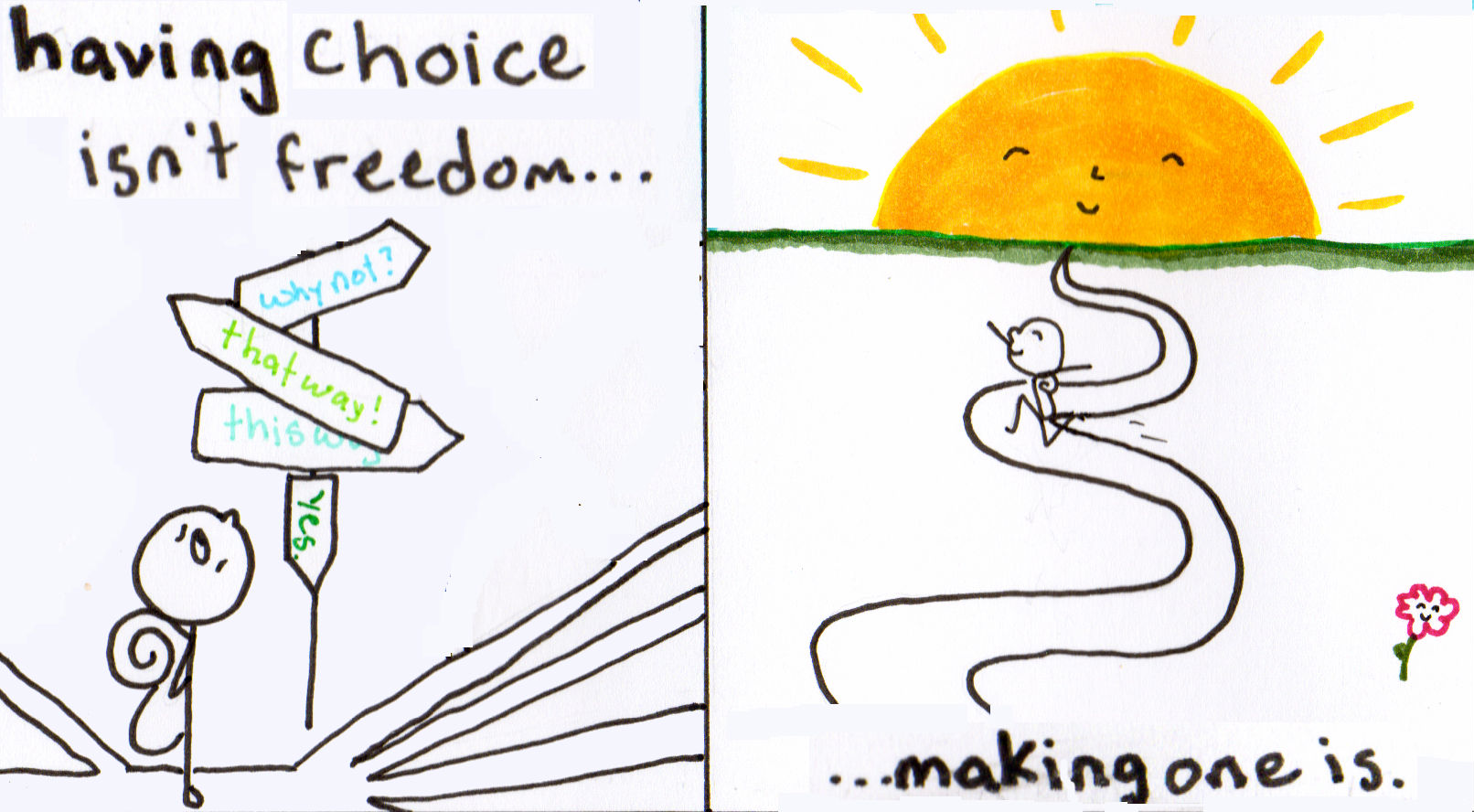On Perfection and Priority

IMAGE OF THE WEEK

Determination seems to underlie all the perfections [of the mind]. There are four aspects to determination. You use your discernment to decide what you want to accomplish, to see how it best might be accomplished, and then you stick with it. To stick with it requires truthfulness, which doesn't mean just telling the truth; it means that once you've made up your mind, you really stick with what you've decided to do. You're true to yourself. You're not a traitor to yourself. That's what'll see you through.
This is going to involve some renunciation and require that you develop a sense of calm within the renunciation, because there are many possible pleasures in this life. If you try to gather up all of them, you go crazy. Once a year I head up to the Bay Area, where there are still traces of the human potential movement. There's a strong sense up there that you can and should actualize your full potential as a human being by striving for excellence in all areas of your life: becoming physically strong and healthy, mentally sharp, artistically creative, socially enlightened, sexually active, politically active, spiritually advanced. People rarely stop to consider that excellence in one area might actually cancel out or preclude excellence in another. In the back of their minds, there's always the thought, "Well, if I'm not happy, it's because I'm not trying hard enough in every possible direction." That's crazy-making. You've got to focus on what's really worthwhile in life, which means resisting a lot of the currents in our culture, because our culture seems to be all about distraction in all directions — or as someone once put it, "discursive noise." [...]
Priority. That's one of the possible meanings of the word parami, which is usually translated as "perfection." Parami is one of those words that nobody really knows why it was chosen or what it means. It doesn't appear in any of the Buddha's own teachings, but was a later development in the tradition. One of the possible meanings of parami is related to parama, which means to be foremost. And the idea of "foremost" can be understood in two ways: One is that you try to become really excellent and foremost in these particular qualities of the mind; and, two, you want to give them top priority, make them foremost in your life. [...]
So remember as you meditate, it's not just a matter of following a technique. You have to apply yourself fully. You have to give your whole heart to this. And as you give your whole heart, your heart gains wholeness. When you give questions of the wise heart top priority, the heart does become excellent.
--Thanissaro Bhikkhu
SEED QUESTIONS FOR REFLECTION: What is your top priority in life? And how do you stay determined to cultivate that priority till it delivers wholeness? How do you reconcile staying determined to follow your priorities with being open to the possibilities of life and avoiding rigidity? Can you share an experience where following your priorities under great challenges led you to wholeness?